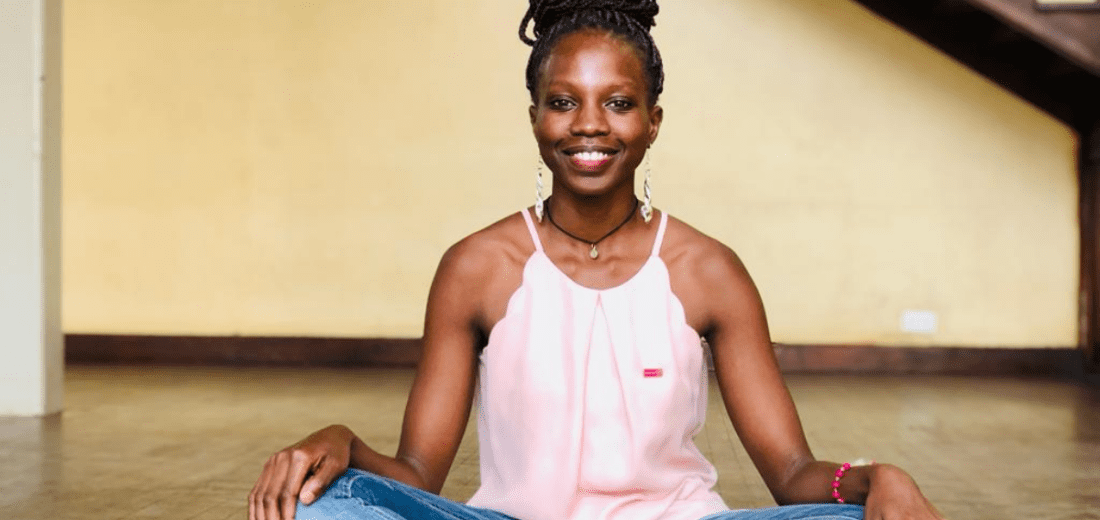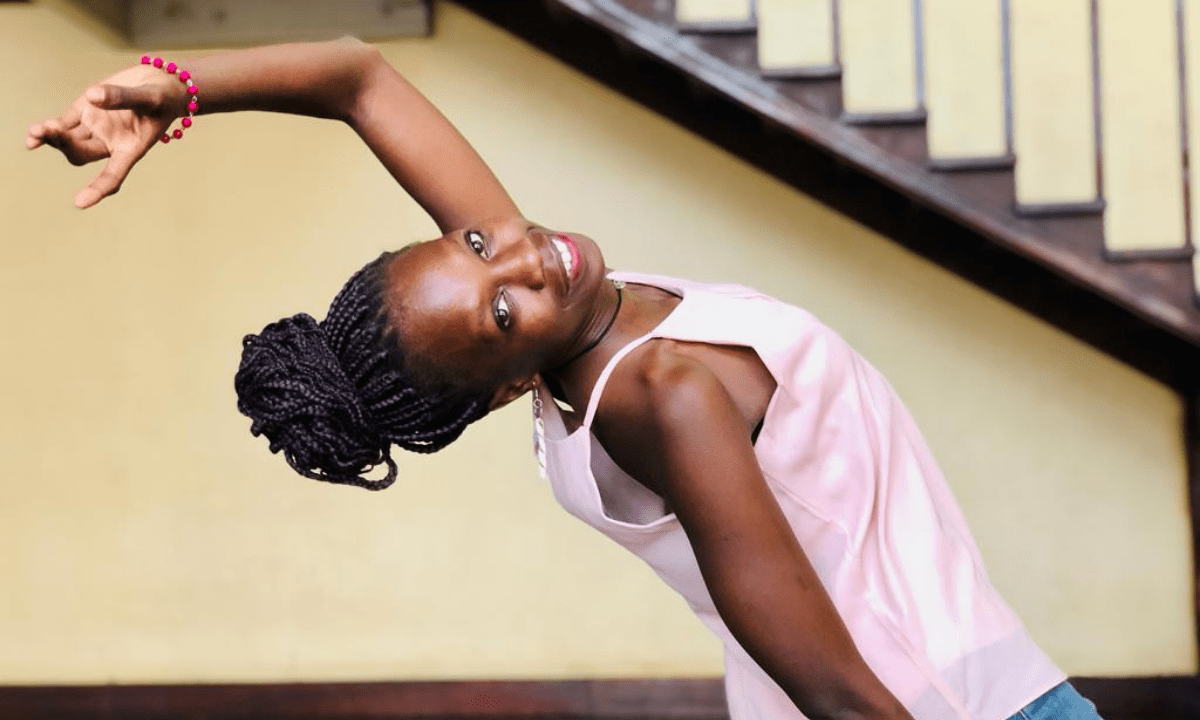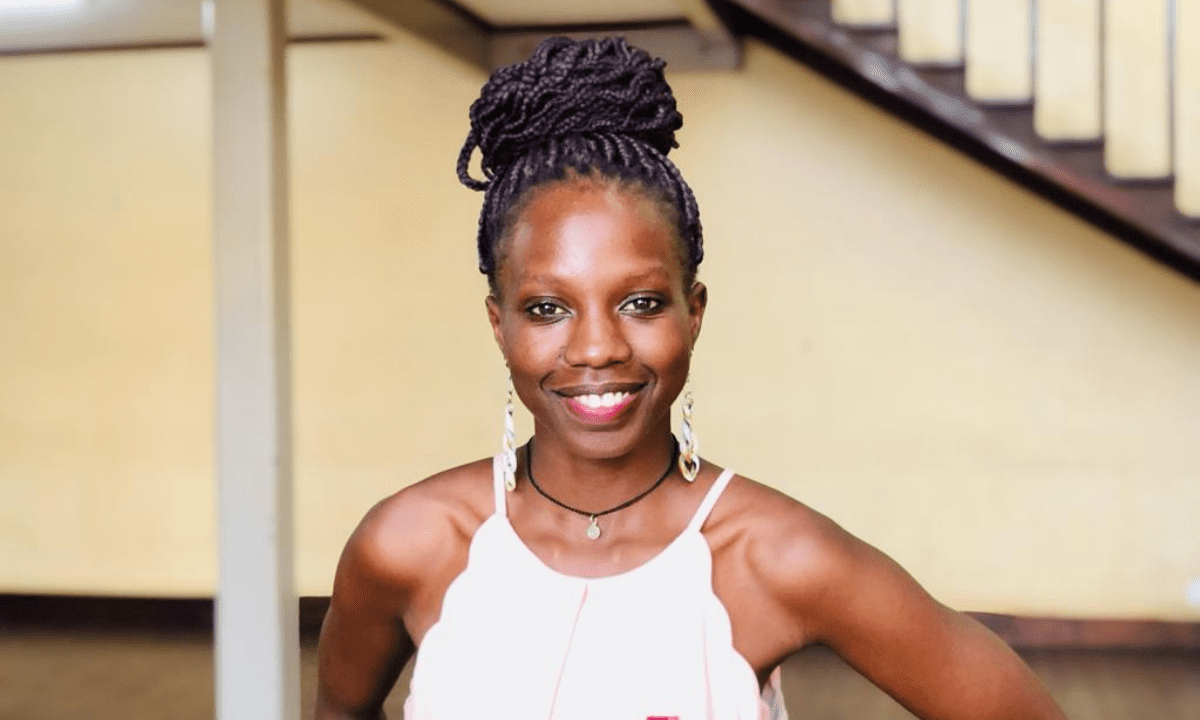
President Prisca’s selflessness for humanity
At just 27 years of age, it is safe to say that Prisca Atite has achieved quite a lot for her age. She took a gamble by opting for a dance course at the university, against her parents’ wishes, instead of the traditional courses. She is forever grateful for that choice because thanks to it, she is now referred to as Madam President.
Prisca Atite is living proof that you are never too young to serve. At such a young age, she is already a professional dancer, jeweler, and yoga teacher. Her desire for community service gained more momentum when she was recently sworn in as the president of the Rotary Club of Makindye, a network of young professionals who are dedicated to serving humanity. Our reporter caught up with her at the prestigious National Theatre of Uganda for a friendly conversation about her life, career, and community service.
How would you describe yourself?
I’m humane, someone with a big heart for humanity, and I love giving back. [Responding to why she’s always smiling] I have no reason to be sad but I do have reasons to be happy all the time.
What’s your daily routine like?
I’m an early riser so I’m normally up by 4 am. The first thing I do is listen to Joel Osteen’s podcast before I embark on checking if there is any pending official work. I believe my brain performs optimally at this time so by the time most people are waking up, which is usually at 6, I’m already done with most of my tasks. After freshening up, I turn on the radio and listen to the morning news to stay informed on the latest happenings. Thereafter at 8, I start making calls to my clients regarding my different hustles like beads and jewelry, yoga and dance classes, as well as other follow-ups. The rest of the day involves attending several Rotary Club meetings and events, especially in the afternoon.
Do you work at the Rotary Club full time?
Yes, and it’s voluntary so I’m not entitled to any payment. Rotarians pay to serve since we believe in serving humanity first. Of course, as a young person, I am bound to encounter financial challenges at times. Before taking the leadership mantle, my predecessor made it clear what was expected of me, to make certain I was mentally prepared.
There are instances where we have costly cross-border trips but luckily, we have members who have the financial muscle to fund the trips, but not the time due to personal engagements. The most important aspect as a Rotarian is simply your willingness to serve.
Let’s go back to your professional career choice, why did you opt for dance at the university?
Truth be told, I wanted to be with the community that I met during my S.6 vacation in 2015. I was doing a short course in tourism when I joined Dynamo Theatre Company and we went on to have many performances at the National Theatre. I also enrolled in dance classes during that period and applied for a course at Makerere University. I met lecturers from the University who informed me that there were ongoing auditions for students who intended to pursue professional dance courses there and encouraged me to give it a shot, which I did. I passed the auditions and got offered a scholarship for the course I had applied for, which fortunately enough allowed me to major in Dance and Communications. It was a challenge during my first year as I was afraid my parents would find out that I had majored in Dance, having previously expressed concern over my choosing a career in dance or even drama and film.

Did your parents finally find out?
Of course, they did. This was during my second year when they had to sign my scholarship papers. My mum was hesitant but she later opened up to me and told me that a dance career only made sense in developed countries, not Uganda. This was understandable.
Has her perception changed?
Yes. The fact that I travel a lot has made her more proud of me. The one thing she has reservations about and has cautioned me against is becoming a video vixen which I don’t fault her for. As the firstborn, my mother expects me to set a good example for my siblings.
Was it fulfilling doing the course?
Yes, it was and it still is. I consider my dance career a blessing as it has brought accomplishments I had never thought of. Immediately after my graduation, I received another dance scholarship in Mozambique, and have also been a dance ambassador. I take dance as a ministry, embracing it as a gift that God has given me to share with the world.
What is life like for a professional dancer in Uganda?
It is not enviable since the opportunities aren’t as many. It’s survival of the fittest so you need to be a great hunter. You have to be disciplined, do a lot of research, and work on your networks. In addition, you need to come to terms with the fact that there will always be a more talented dancer than you, with or without education. There is also more demand for new faces by producers which is normal because that’s how the industry operates.
The money is there but you need to be smart enough to earn it. The people that earn the most out of dance are those that do dance fitness because they are promoting and selling health. You have to package your idea uniquely to be able to sell it to clients. Dance is no longer just about entertainment, it comprises therapy, and education, among other things. If you understand the art of dance, then you let the audience decide what they want out of it.
How about societal perception?
The current society is divided by generations. The older ones are still rigid and perceive dance as a social aspect whereas the younger ones are more accommodative.
What are some of your achievements so far?
Quite many actually. I graduated top of my class. In 2019, I produced one of the biggest shows of the year at the National Theatre titled Voices which addressed the issue of gender-based violence. I have also met many parents who tell me that their kids wish to be like me. Most importantly, I can stand and proudly introduce myself as a dancer in the company of people from other professional careers.
How did you join the Rotary Club?
I was invited to be a dance teacher at one of the children’s modeling craft schools. There, I met a Rotarian who informed me that they had a fitness and nutrition day at the Rotary Club of Makindye. She invited me to a meeting which I attended. I was then invited to be a dance teacher during their retreat where I was officially invited to join them.
What exactly is the Rotary Club?
The Rotary Club comprises a network of professionals. It is an international humanitarian organization that was started in 1995. It has different age groups —the Rotarians are aged 35 and above, Rotaractors are between 18 and 35, and the Interacters are those still in school. Our motto is ‘Service above self.’ Our areas of focus are; water and sanitation, basic education and literacy, community and economic development, maternal and child health, Rotary Foundation, as well as disease prevention. Each Rotaract, or Rotary Club, chooses two areas to focus on. So, if a Club in a particular area chooses the theme of clean water and sanitation, you will find many boreholes or water points as a result of their intervention.
Why should a young person be part of the Rotary Club?
What I love the most about the Rotary Club is that you join a network of professionals who will serve as a source of inspiration. It teaches you how to better understand the needs of the community. In addition, you make friends who become family. As a young person, it instills in you the value of serving others without expecting anything in return. We are currently discussing in our leadership group how best we can assist the people of Karamoja who have been struck by a famine that has led to the loss of many lives.

Of what benefit is the Rotary Club to society?
We identify a need in a particular community and come up with ways of mitigating it.
What inspired you to take on leadership in the Rotary Club?
When I joined, the thought of taking on a leadership role never crossed my mind. I was actually nominated in absentia.
Why you?
At first, I thought it was because I was very active, yet a few other members were more active than I was. I finally realized I was chosen because of the trust and hope the members had in me. I accepted the challenge and was sworn in as the President of the Rotaract Club of Makindye and I have no regrets.
How does it feel being the president?
It’s amazing though the first week felt strange. I was used to sitting at the back but when I became the president, I am expected to sit at the front during meetings. Another unusual thing I experienced during the early days was the fact that I didn’t have to introspect myself, it was someone else’s role to do so. However, I have since gotten used to some of these formalities.
What are some of the key issues you hope to embark on during your tenure?
My term in office lasts for only a year. I hope to maintain the week fellowships and build more awareness not only about the Rotary Club but also about humanity. I also hope to embark on programs that will develop and grow our members in their different capacities. Most importantly, I hope to serve to the best of my ability.
As a person, how would you like to be remembered?
I would like to be remembered as a person who made an impact on humanity.
Any final words to fellow young people?
Trust in God. Believe in yourself. Serve humanity.

Leave a Reply